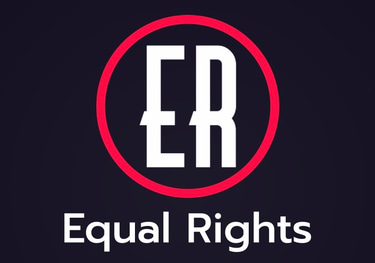How to Get Involved in Human Rights Advocacy:
Practical Ways to Support and Engage
Kylo B
6/30/2024
How to Get Involved in Human Rights Advocacy: Practical Ways to Support and Engage
Human rights advocacy is crucial for promoting justice, equality, and dignity for all individuals. Whether you are passionate about civil rights, gender equality, or environmental justice, there are numerous ways to get involved and make a difference.
This article outlines practical steps and strategies for individuals who want to support and engage in human rights work.
1. Educate Yourself
Knowledge is Power
Understanding the issues is the first step in effective advocacy. Educate yourself about human rights, key issues, and current events. Here are some ways to get started:
Read Books and Articles: Seek out literature on human rights history, theory, and contemporary issues. Recommended authors include Amartya Sen, Martha Nussbaum, and Desmond Tutu.
Follow News and Reports: Stay informed about current events and human rights violations by following reputable news sources and reports from organizations like Amnesty International and Human Rights Watch.
Take Online Courses: Enroll in online courses or attend seminars on human rights topics. Websites like Coursera and edX offer courses from leading universities.
2. Join or Support Human Rights Organizations
Become Part of a Larger Movement
Many organizations work tirelessly to promote human rights globally and locally. Joining or supporting these organizations can amplify your impact.
Volunteer: Offer your skills and time to organizations that align with your interests. Roles can range from administrative support to fieldwork.
Donate: Financial contributions help sustain the operations and initiatives of human rights organizations.
Advocate: Use your voice to support the campaigns of these organizations. This can include signing petitions, participating in letter-writing campaigns, or spreading awareness on social media.
3. Raise Awareness
Spread the Word
Raising awareness is a powerful tool in human rights advocacy. It involves informing others about issues and encouraging them to take action.
Social Media: Use platforms like Twitter, Facebook, and Instagram to share information, articles, and personal insights about human rights issues.
Public Speaking: Engage in public speaking at schools, community centers, or local events to educate others about human rights.
Organize Events: Host or participate in events such as workshops, film screenings, and panel discussions to raise awareness and mobilize support.
4. Advocate for Policy Change
Influence Legislation and Policy
Policy advocacy involves influencing lawmakers and government officials to enact or change laws and policies that promote human rights.
Lobbying: Meet with your local representatives to discuss human rights issues and advocate for specific legislative changes.
Petitions: Start or sign petitions calling for policy changes or the implementation of human rights protections.
Public Campaigns: Participate in or organize campaigns that aim to influence public opinion and political action on human rights issues.
5. Support Human Rights Education
Educate the Next Generation
Human rights education is essential for building a culture of respect and understanding.
Teaching: Incorporate human rights education into school curricula or community programs. This can involve lesson plans, interactive activities, and discussions.
Workshops and Seminars: Organize or participate in workshops and seminars that educate others about human rights principles and issues.
Educational Materials: Develop and distribute educational materials such as brochures, booklets, and multimedia resources to raise awareness and educate the public.
6. Engage in Community Service
Make a Difference Locally
Community service projects can directly impact human rights by addressing immediate needs and fostering a sense of solidarity.
Shelters and Food Banks: Volunteer at shelters, food banks, and other community service organizations that support vulnerable populations.
Legal Aid: Provide or support legal aid services to individuals facing human rights violations, such as refugees, asylum seekers, and marginalized communities.
Health Services: Support healthcare initiatives that provide essential services to underserved populations.
7. Use Your Professional Skills
Leverage Your Expertise
Many professional skills can be valuable in human rights work.
Legal Professionals: Lawyers can offer pro bono services, work with human rights organizations, or advocate for policy changes.
Journalists: Report on human rights issues to raise awareness and hold violators accountable.
Artists and Creatives: Use art, music, and other creative mediums to highlight human rights issues and inspire action.
8. Participate in Peaceful Protests and Demonstrations
Show Solidarity and Demand Change
Peaceful protests and demonstrations can draw attention to human rights issues and show solidarity with affected communities.
Marches and Rallies: Join or organize marches and rallies to demand action on human rights issues.
Sit-ins and Vigils: Participate in or organize sit-ins and vigils to raise awareness and demonstrate commitment to human rights causes.
Civil Disobedience: Engage in nonviolent civil disobedience to protest unjust laws and policies.
9. Advocate for Corporate Responsibility
Hold Businesses Accountable
Corporations have a significant impact on human rights. Advocating for corporate responsibility can lead to better practices and respect for human rights.
Ethical Consumerism: Support companies that prioritize human rights and boycott those with poor human rights records.
Shareholder Activism: If you own shares in a company, use your influence to push for better human rights practices.
Corporate Campaigns: Support campaigns that demand transparency and accountability from businesses regarding their human rights impact.
10. Network and Collaborate
Build a Supportive Community
Building a network of like-minded individuals and organizations can amplify your impact and provide support.
Join Networks: Become part of human rights networks and coalitions to share resources, strategies, and support.
Collaborate: Work with other activists and organizations to plan joint actions and campaigns.
Mentorship: Seek out mentors with experience in human rights advocacy and offer mentorship to new activists.
Human rights advocacy is a dynamic and multifaceted endeavor that requires dedication, knowledge, and action. By educating yourself, joining organizations, raising awareness, advocating for policy change, supporting education, engaging in community service, leveraging professional skills, participating in protests, advocating for corporate responsibility, and networking, you can contribute significantly to the promotion and protection of human rights. Every action, no matter how small, can make a difference in the fight for justice, equality, and dignity for all.
